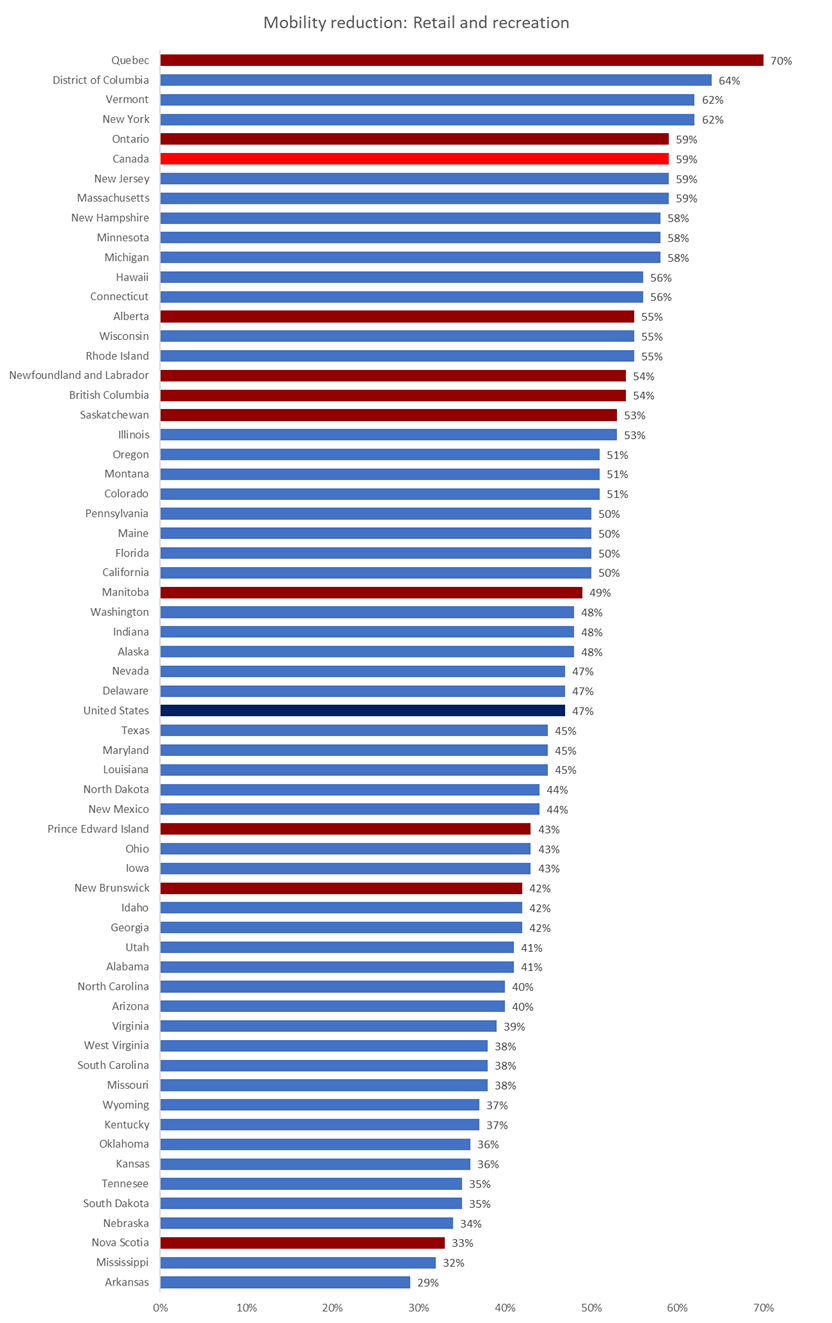Last Friday, L'actualité magazine political bureau chief Alec Castonguay published an analysis of Google data released a few days ago on the mobility changes of people around the world due to the spread of the coronavirus.
Using its massive geolocalization data (anonymously, Googles says), the tech giant was able to measure an estimate of people's mobility to places like restaurants, cafés, shopping centres (under "Retail and recreation"), grocery markets and drug stores ("Grocery and pharmacy"), parks and beaches ("Parks"), subways and trains stations ("Transit stations") and workplaces. Unsurprisingly, when we compare the latest mobility data with Google's baseline, which spans the five-week period from January 3 to February 6, 2020, we see a steep decline in mobility - mostly due to the spread of the coronavirus and of confinement measures implemented by provincial, state and federal governments across the world.
Read this article here.

 Philippe J. Fournier is the creator of Qc125 and 338Canada. He teaches physics and astronomy at Cégep de Saint-Laurent in Montreal. For information or media request, please write to info@Qc125.com.
Philippe J. Fournier is the creator of Qc125 and 338Canada. He teaches physics and astronomy at Cégep de Saint-Laurent in Montreal. For information or media request, please write to info@Qc125.com.
Philippe J. Fournier est le créateur de Qc125 et 338Canada. Il est professeur de physique et d'astronomie au Cégep de Saint-Laurent à Montréal. Pour toute information ou pour une demande d'entrevue médiatique, écrivez à info@Qc125.com.
Using its massive geolocalization data (anonymously, Googles says), the tech giant was able to measure an estimate of people's mobility to places like restaurants, cafés, shopping centres (under "Retail and recreation"), grocery markets and drug stores ("Grocery and pharmacy"), parks and beaches ("Parks"), subways and trains stations ("Transit stations") and workplaces. Unsurprisingly, when we compare the latest mobility data with Google's baseline, which spans the five-week period from January 3 to February 6, 2020, we see a steep decline in mobility - mostly due to the spread of the coronavirus and of confinement measures implemented by provincial, state and federal governments across the world.
Read this article here.

 Philippe J. Fournier is the creator of Qc125 and 338Canada. He teaches physics and astronomy at Cégep de Saint-Laurent in Montreal. For information or media request, please write to info@Qc125.com.
Philippe J. Fournier is the creator of Qc125 and 338Canada. He teaches physics and astronomy at Cégep de Saint-Laurent in Montreal. For information or media request, please write to info@Qc125.com.
Philippe J. Fournier est le créateur de Qc125 et 338Canada. Il est professeur de physique et d'astronomie au Cégep de Saint-Laurent à Montréal. Pour toute information ou pour une demande d'entrevue médiatique, écrivez à info@Qc125.com.
